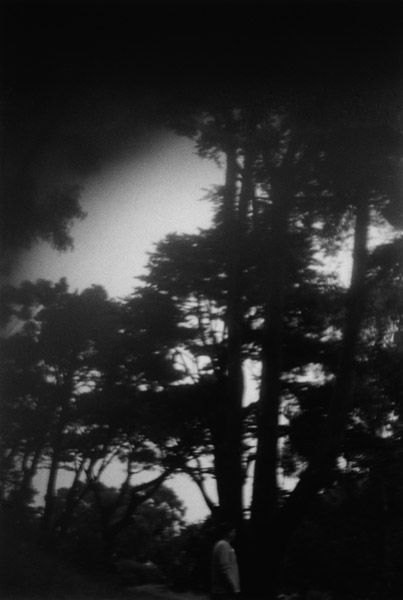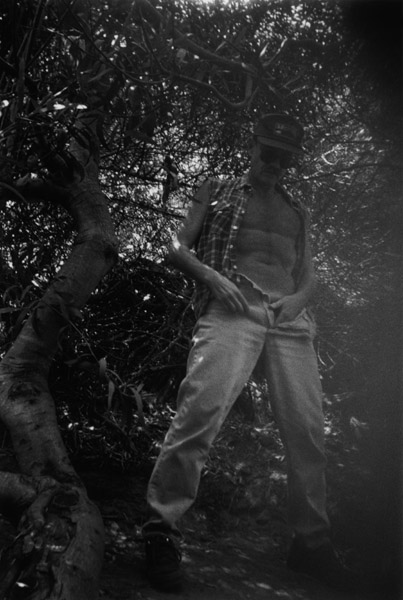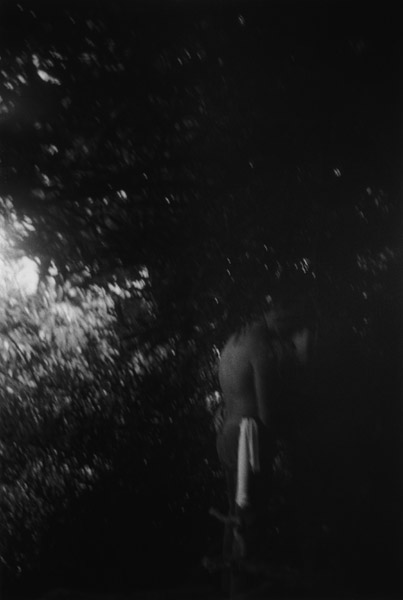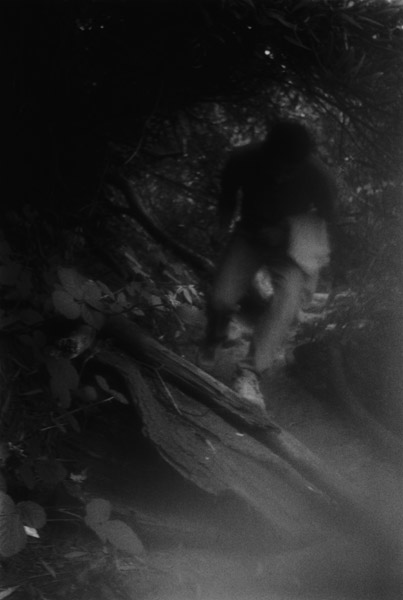“Christopher Russell,” Artillery Magazine, June/July. Vol. 6 Issue 5.
“Christopher Russell,” Artillery Magazine, June/July. Vol. 6 Issue 5. 2012
I’VE FOLLOWED CHRISTOPHER RUSSELL’S work for some time now. Like his polymorphous art practice, which pushes the boundaries of photography, drawing, text, performance, sound and installation, Russell is filled with many pleasing contradictions. As a person, he’s disarmingly polite, has a piercing wit and an unabashedly dirty mind. One of the first works of his I remember seeing was “Landscape,” a 1996 series of black-and-white images captured using a hidden camera, of men having anonymous sex in brambly cruising spots. The photos are spectral and voyeuristic, addressing bodies engaged in intimate contact on the periphery between public and private. Another project, Russell’s Bedwetter zine from the early 2000s—filled with libidinous text that had to be destroyed and ripped apart in order to be read—heightened the feeling that one must always accept lost purity in exchange for desired experience. While his newer work has avoided the intensity of earlier abjection and sexual explicitness, to an extent these devices always linger close to the subject at hand.
Many of Russell’s images grow out of his written texts, which engage themes ranging from psychosexual experiences, the romantic, politics, violence, to sites of deterioration and innocence in revolt. Alongside these narratives, which often take the form of books (but have also manifested as wallpaper and audio tracks), Russell creates photographs that speak to the story’s setting, the characters involved and mental and physical states at play. In many pieces he uses a knife to scar the printed surface, or etches-in intricate images that contradict their surroundings: a grand sailboat over a deteriorating abandoned living-room wall; a flowery pattern veiling a yellowed photo of a young man. The work is at the same time both devastating and seductive, referencing imaginative decadent aesthetics and escape in the midst of impending ruin.
When I recently asked Russell what he’s interested in now he responded by discussing a new text he’s writing, informed by how insane the current political landscape has become.
“The text works through a number of political ideas such as free will and opportunity, forces operating upon one’s identity that are beyond one’s own control. But I get there in circuitous ways, using the 19th-century mystic Helena Petrovna Blavatsky, while thinking about Alan Sekula’s photo theory, end of an era paranoia courtesy of the McMartin preschool. [trial] The book ends with a satanic prayer to ward off the Tea Party.
I’m drawing, by scratching into photos, pictures of the Brooklyn Bridge in varying degrees of ruin, coupled with crumbling bits of deco architectural design. I just want to see the exuberant promise of industry, the role of the corporation in the promise of America, reduced to rubble; overcome by forces outside its control. It’s less politics and more like revenge.”
Considering the poignant intimacy and haunting depths of his previous works, Russell seems aptly suited to poetically reframe dominant narratives of American exceptionalism. He will no doubt do this by unraveling truths we hold dear, revealing the contradictions that lurk on the fringes, outside and beyond the conventional frame.
©2024 Tucker Neel. All rights reserved.



